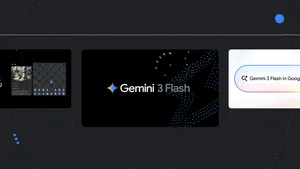15 startups using AI to protect, restore and conserve nature

It’s estimated that without immediate action, more than half of global GDP is exposed to extensive risk from the decline of the natural world. Google has developed products, platforms and technologies to address this — including Earth Engine for geospatial analysis, SpeciesNet for analyzing photos from camera traps, and our bioacoustics model Perch, which is used by researchers all over the world for detecting bird species.
We’re also supporting others working on this issue. The Google for Startups Accelerator: AI for Nature is a 10-week program designed to provide early-stage startups with the resources they need to scale their impact. Participants receive mentorship from Google experts, technical support, and access to Google's advanced technology, including AI/ML, Cloud, and Maps. After the Accelerator ends, these startups will join our Google for Startups alumni network and continue to receive support, including access to Google mentors, expert insights, technology and events.
We're thrilled to announce the 15 startups selected for this program’s first-ever cohort. Chosen from a highly competitive pool of applicants, these companies are using AI and other advanced technologies to address some of our planet's most pressing challenges, such as protecting biodiversity, restoring ecosystems and promoting effective conservation.
SenseNet is focused on early wildfire detection.
Savimbo is working to protect Indigenous communities and prevent deforestation.
eDNA Explorer is building an AI-powered solution focused on protecting the ecosystem.
These startups (which are based in North and Latin America) are focused on measuring, monitoring, protecting and restoring nature.
Abundance (Brazil) is a climate-tech platform that turns forests and carbon into verified digital assets, using AI and blockchain to bring transparency, trust and liquidity to environmental markets.
Bloom Alert (Chile) uses satellite tech and AI to enhance water production in desalination and mining, providing early warnings for environmental challenges.
Brightband (United States) is democratizing weather forecasting by providing accessible AI-driven tools to improve extreme weather predictions, aiming to save lives and reduce economic impacts estimated at $162 billion USD annually.
Ceres Seeding (Brazil) develops tech and protocols to enable the use of autonomous drones in all ecological restoration processes, making it cheaper, quicker and safer to implement restoration projects, principally in hard to access areas.
Earthshot Labs’ (United States) mission is to restore and protect nature at planetary scale. They develop and finance nature-based carbon projects globally and are building the underlying infrastructure to scale carbon markets.
Ecotrace Solutions (Brazil) is a Brazilian deep tech company using blockchain, AI and IoT to ensure end-to-end traceability in the agribusiness supply chain.
eDNA Explorer (United States) integrates eDNA, geospatial data and AI to help natural resource managers make smarter decisions about ecosystem health and conservation.
OnDeck (Canada) automates video monitoring of oceans with AI. By understanding any footage just like a human, OnDeck can find anything without needing labeled training data.
Renoster (United States) is a climate technology company bringing deep transparency and scientific rigor to carbon markets.
Savimbo (United States) is a social enterprise made by, and for, Indigenous Peoples and local communities to access climate markets directly.
SenseNet (Canada) is the most comprehensive wildfire platform, combining sensors, cameras, satellites and advanced data systems to enable ultra-early detection, predictive fire modeling and real-time response protecting infrastructure, communities and natural ecosystems.
Terradot (United States) is a science and technology company building gigaton-scale carbon removal through Enhanced Rock Weathering (ERW).
Toroto (Mexico) empowers communities and companies to act on climate change using nature-based solutions that are guided and tied together by four lines of action: carbon, water, biodiversity and communities.
Umgrauemeio (Brazil) is focused on wildland fire technologies and impact analysis; leveraging AI and remote sensing for their wildfire intelligence platform, Pantera.
Xatoms (Canada) is a deep-tech startup using AI and quantum chemistry to discover new materials capable of purifying contaminated water globally.







